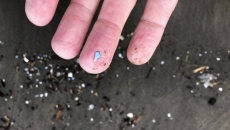The RCMP says it installed tools on digital devices to covertly collect electronic evidence in 32 cases over a five-year period.
The criminal offences being investigated in these cases from 2017 to 2022 involved national security, illicit drugs, financial misdeeds and other serious matters.
The national police force disclosed the statistics today in a report that provides details about various operational technologies.
It also includes information on remotely piloted drones, facial recognition software and tools for crunching large amounts of data.
The RCMP says it needs to constantly consider how new and emerging technologies can be used to fight crime.
In 2021, the RCMP created the National Technology Onboarding Program to ensure responsible use of technologies and to encourage more public transparency.






